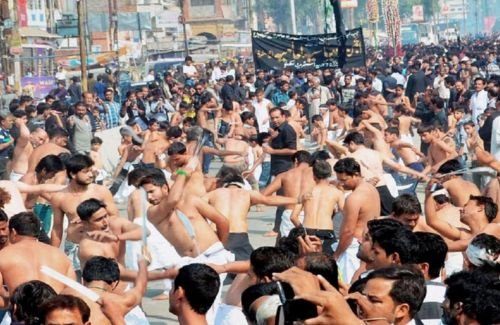The inception of Muharram heralds the advent of the Islamic lunar calendar’s initial month, and it holds profound significance in the hearts of countless Muslims worldwide. It signifies the commencement of the Islamic New Year and embodies a period of profound contemplation, solemnity, and commemoration. This hallowed month is observed with great reverence and devotion, particularly within the Shia Muslim community, as it encapsulates historical events that evoke intense emotions of sorrow and remembrance.
The Importance of Muharram:
The Month Revered for Remembrance Muharram earns its distinction as the “Month of Remembrance” because it is during this period that Muslims pay homage to the martyrdom of Imam Hussain ibn Ali, the esteemed grandson of Prophet Muhammad (peace be upon him). The heartrending events that unfolded during the Battle of Karbala in 680 AD, where Imam Hussain and his loyal companions met a brutal fate, continue to be commemorated as a symbol of sacrifice and steadfastness.
Throughout Muharram, Muslims engage in various acts of devotion, including fasting and participating in special congregational prayers known as “majlis.” These gatherings involve narrating the events of Karbala and reflecting on the profound lessons of courage, selflessness, and unwavering faith exemplified by Imam Hussain.

The Commemoration of Ashura in Muharram:
Ashura: A Day Enshrouded in Mourning The tenth day of Muharram, known as Ashura, holds distinct significance. It is a day of mourning, wherein Muslims recollect the tragedy of Karbala and the sacrifices made by Imam Hussain and his steadfast companions. Devotees assemble at mosques and other places of worship to recite elegies, listen to sermons, and participate in processions.
Fasting on Ashura Numerous Muslims voluntarily observe fasting on Ashura as an act of piety and in remembrance of the hardships endured by Imam Hussain and his devoted followers.
Themes of Unity and Compassion Universal Lessons While Muharram and the events of Karbala have deep roots in Islamic history, the lessons they impart are universal in nature. The spirit of sacrifice, resilience, and unwavering commitment to truth resonates with individuals from diverse backgrounds and faiths.
Also Read: World Nature Conservation Day in India: A Peep into it
Promoting Unity Muharram presents an opportunity for Muslims to unite and strengthen the spirit of solidarity among the ummah (Muslim community). It serves as a poignant reminder of the paramountcy of standing together in the face of adversity.
Peace and Communal Harmony:
Despite the somber nature of Muharram, it is crucial to acknowledge that Islam advocates non-violence and love for all humanity. The tragedy of Karbala underscores the significance of seeking justice through peaceful means. Muharram also provides an occasion for interfaith dialogue and understanding, as people from diverse beliefs come together to gain insights into the significance of this month for Muslims.
Muharram stands as a sacred month with profound significance for Muslims, particularly within the Shia community. It is a time for reflection, remembrance, and devotion, as adherents commemorate the martyrdom of Imam Hussain and his companions at the Battle of Karbala. Through acts of fasting, prayer, and community gatherings, Muslims strive to extract invaluable lessons from the events of Muharram, such as courage, sacrifice, and unity.
Beyond its religious import, Muharram also promotes universal values of compassion, non-violence, and communal harmony. It serves as a poignant reminder to individuals of all backgrounds to stand in unison against injustice and uphold the principles of peace and love. As Muslims observe this sacred month, they reinforce their faith, strengthen their communal bond, and extend a message of compassion to the wider world.


